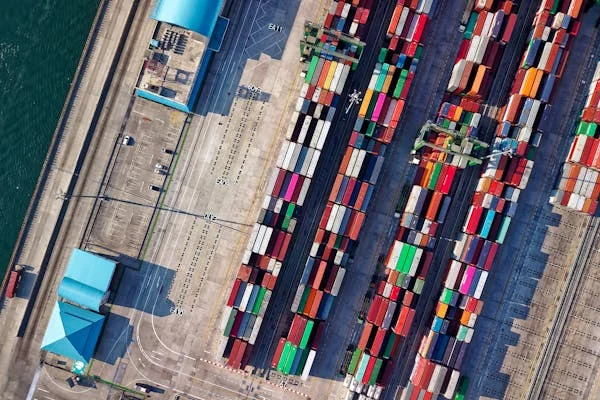Shipping containers have long been a symbol of global trade and logistics, with a standardized form allowing for the efficient movement of goods across oceans and continents. Today, however, the role of shipping containers is expanding beyond traditional shipping functions.
The evolution of shipping containers into versatile tools is revolutionizing industries, from construction to storage solutions, and even sustainable development. In this article, you will know the reasons why shipping containers are shaping the future of container solutions.
1. Efficiency and Standardization
Take note that shipping containers are engineered for efficiency, with the ISO standard defining container sizes and handling protocols to ensure transportation by sea and road without significant modifications. This standardization simplifies logistics, allowing such as:
- Quick loading and unloading
- Reducing transit time
- Cutting costs
Additionally, the uniform size also facilitates easy storage and stacking, optimizing warehouse and port spaces. As industries evolve and the demand for faster delivery grows, the reliance on standardized containers continues to increase, influencing industries that require mobile or modular solutions.
2. Versatility in Use
Always remember that a shipping container’s durability and adaptability make units ideal for various innovative uses across sectors. In construction, shipping containers are repurposed as modular units for both temporary and permanent buildings, including:
- Offices
- Emergency shelters
- Housing solutions
Also, containers used for pop-up retail stores or community centers, showcasing versatility. Offering quick-to-install structures, shipping containers help businesses and organizations meet dynamic needs. As urbanization grows, the demand for cost-effective, flexible building solutions is expected to rise.
3. Cost-Effective Storage Solutions
Purchasing or renting a shipping container for storage presents an easy way to get budget-friendly space that takes up more useful space in warehouses than in commercial spaces in areas where commercial leasing space is limited. Storage solutions of such sizes provide cheap value for small businesses.
Plus, the durability of a shipping container makes it reliable for long-term use. Individuals use shipping containers for personal storage, whether to secure household goods during a move or provide extra space for seasonal items. A shipping container offers a secure option for a variety of storage needs.
4. Sustainability and Reuse
With growing awareness of environmental sustainability, the shipping containers are now considered as a profitable material for upcycling. By repurposing used containers rather than making new construction materials, carbon footprint reflects that this will be a way to stay linked with sustainable development. As society pushes for greener initiatives, retail companies incorporate shipping containers into designs.
5. Scalability and Mobility
Businesses can easily expand by adding more containers as needed, whether for additional office space or increased storage. Shipping containers can be stacked or placed side-by-side to accommodate growth, allowing businesses to scale without the delays of traditional construction. Container mobility offers unmatched convenience, as containers can be relocated for use in:
- Mobile retail outlets
- Food trucks
- Temporary offices
6. Improved Security
Constructed from thick steel, shipping containers offer a strong barrier against weather and vandalism. With sturdy locks and the option to add extra security measures like alarms or cameras, shipping containers create a highly secure environment for both commercial and personal use.
On top of that, the robustness of shipping containers also makes the shipping containers ideal for remote or sensitive locations. Whether used as mobile data centers or in disaster relief efforts, shipping containers can be securely stored and easily transported to regions in need.
7. Support for Sustainable Cities
Don’t forget that shipping containers, like Shipping Containers Auckland, are playing an increasingly important role in urban planning and sustainable development. Container housing provides an affordable, eco-friendly option for creating livable spaces in areas with limited land or resources.
Aside from that, containers are being used in sustainable farming, particularly in vertical farming systems. By stacking containers, farms can be established in small urban spaces, allowing cities to produce food locally. This innovation boosts urban food security while reducing transportation costs and the environmental impact of long-distance food supply chains.
8. Advancements in Technology Integration
Keep in mind that the future of shipping containers is being shaped by both versatility and technological advancements. What’s more is that doing a real-time monitoring makes sure that optimal conditions for sensitive goods, such as:
- Pharmaceuticals
- Perishable food items
In addition to that, with 3D printing and advanced fabrication techniques, containers can be easily modified and customized for various applications. This integration of technology broadens the potential of shipping containers, maintaining relevance in a connected, tech-driven world.
Empowering the Future with Shipping Containers!
Investing in shipping containers offer from cost-effective to scalable solutions, making shipping containers vital to modern industry. Adaptability across various sectors, along with advancements in technology and sustainability, ensures continued impact on global goods. As the world evolves, shipping containers will remain essential for businesses, providing an innovative approach to future needs.





